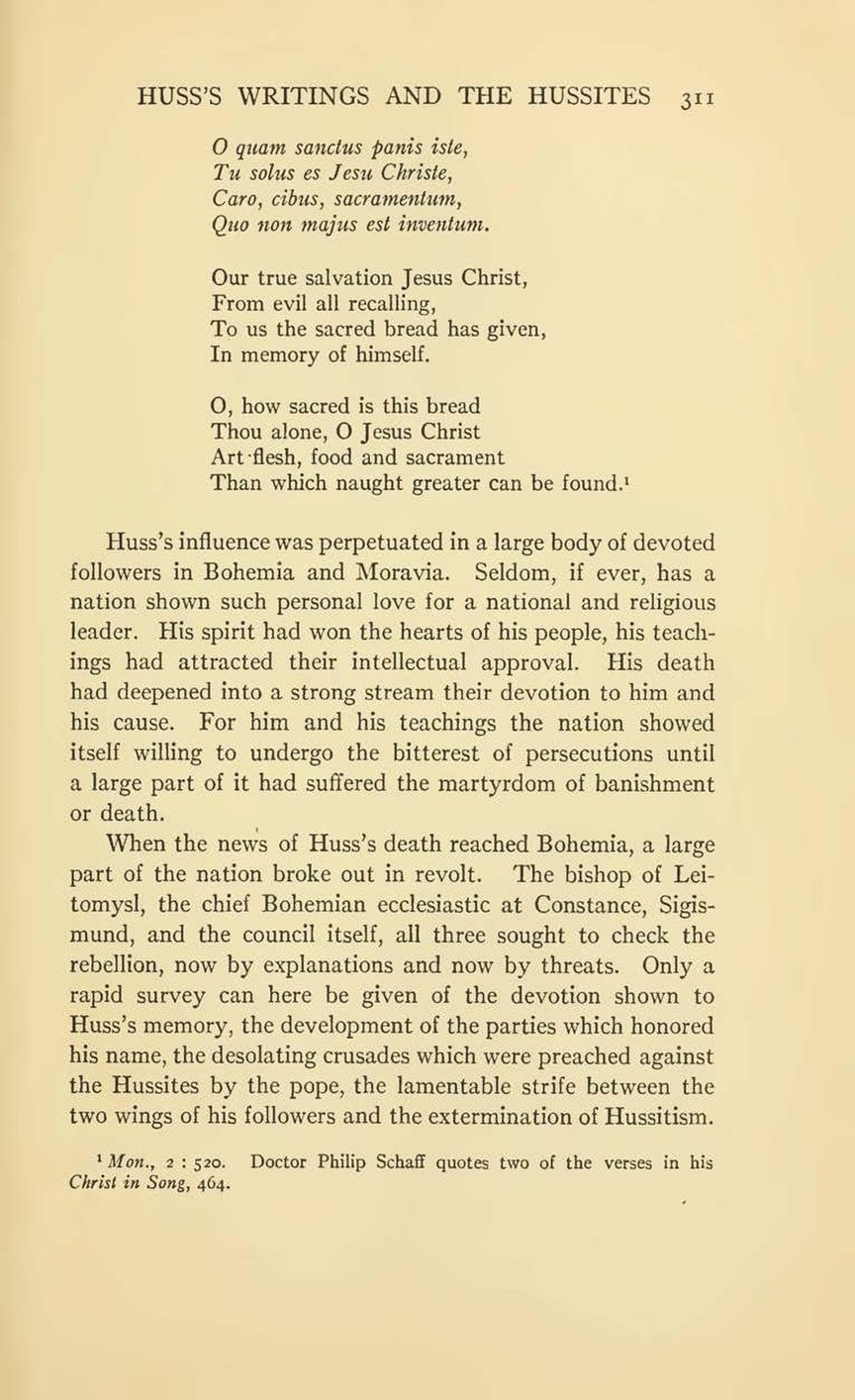O quam sanctus panis iste,
Tu solus es Jesu Christe,
Caro, cibus, sacramentum,
Quo non majus est inventum.
Our true salvation Jesus Christ,
From evil all recalling,
To us the sacred bread has given,
In memory of himself.
O, how sacred is this bread
Thou alone, O Jesus Christ
Art flesh, food and sacrament
Than which naught greater can be found.[1]
Huss’s influence was perpetuated in a large body of devoted followers in Bohemia and Moravia. Seldom, if ever, has a nation shown such personal love for a national and religious leader. His spirit had won the hearts of his people, his teachings had attracted their intellectual approval. His death had deepened into a strong stream their devotion to him and his cause. For him and his teachings the nation showed itself willing to undergo the bitterest of persecutions until a large part of it had suffered the martyrdom of banishment or death.
When the news of Huss’s death reached Bohemia, a large part of the nation broke out in revolt. The bishop of Leitomysl, the chief Bohemian ecclesiastic at Constance, Sigismund, and the council itself, all three sought to check the rebellion, now by explanations and now by threats. Only a rapid survey can here be given of the devotion shown to Huss’s memory, the development of the parties which honored his name, the desolating crusades which were preached against the Hussites by the pope, the lamentable strife between the two wings of his followers and the extermination of Hussitism.
- ↑ Mon., 2: 520. Doctor Philip Schaff quotes two of the verses in his Christ in Song, 464.
